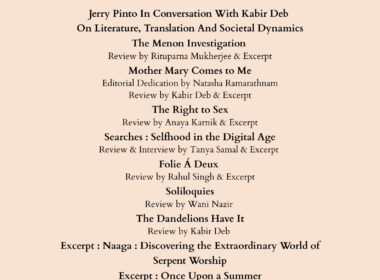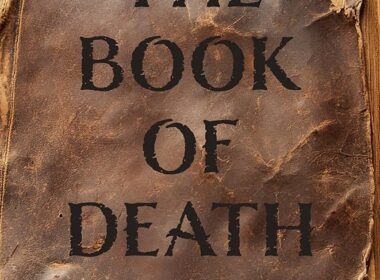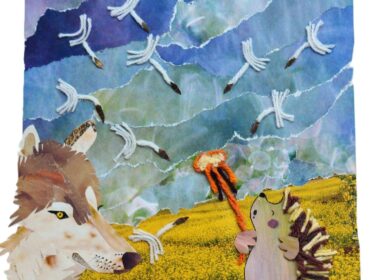Review: Reflections on Life, Death, and Human Dignity in a Time of Crisis
By Ismail Salahuddin

Ramin Jahanbegloo’s The Courage to Exist: A Philosophy of Life and Death in the Age of Coronavirus is not simply a reaction to a global health crisis but it is a deeply personal, moral, and philosophical meditation on how we, as human beings, respond to uncertainty, grief, and the fragility of life. Written during the early phase of the pandemic, the book poses urgent questions that outlast the moment: how do we live meaningfully in a time of suffering and fear? What kind of moral resources can help us confront death, not only our own, but that of millions of strangers? What happens to our sense of ethics, responsibility, and solidarity when the foundations of everyday life collapse?
Rather than offering prescriptions or political commentary, Jahanbegloo presents the reader with something more lasting – a reflective conversation across time and tradition. He draws from ancient Greek philosophers, Stoic ethics, modern existentialism, and moral thinkers like Gandhi, Thoreau, and Martin Luther King Jr., to create what feels like a shared moral archive. While the book is modest in size, under 100 pages, its ethical ambition is vast. It seeks to revive the lost art of living, to rethink our relationship with death, and to affirm the need for love, empathy, and civic responsibility in a broken world. In many ways, The Courage to Exist is less a treatise than a quiet act of philosophical witnessing.
The book is structured around five short chapters: Living, Suffering, Dying, Resisting, and Solidarity of the Shaken. Each chapter unfolds like a series of meditative fragments, drawing on literary and philosophical voices to explore what it means to be human in the face of a global catastrophe.
In Living, Jahanbegloo opens with a powerful observation: we all live similar lives, but not all of us live them wisely. To live meaningfully, he insists, requires a certain spiritual independence and inner freedom. The chapter invokes Thoreau’s ideal of “living deliberately” and contrasts it with the empty pursuit of happiness in a consumer-driven civilisation. He reminds us, echoing Schopenhauer, that life often oscillates between pain and boredom, and that wisdom lies in recognising the vanity of worldly success. Drawing from the Stoics, Jahanbegloo argues that philosophy is not a luxury, but a way to endure suffering and remain morally grounded.
The second chapter, Suffering, traces how the modern individual, obsessed with productivity and self-interest, has lost touch with the deeper ethical meaning of pain. Jahanbegloo turns to Socrates, Gandhi, and King to show how suffering, when embraced consciously, can become a force of transformation. He calls for a renewal of humanitas, the classical Roman ideal of moral excellence, which reminds us that we are always in relation with others. Suffering, then, is not merely a private experience but it is also a site of ethical connection, a possibility for compassion, resistance, and justice.
In Dying, the book shifts to one of its most profound themes: how modern civilisation has de-spiritualised death. Unlike animals, humans are aware of their mortality, but we still deny its presence in our daily lives. Jahanbegloo invokes Shakespeare’s Hamlet, Schopenhauer, and Camus to suggest that death is not just an end, but a mirror held up to life. He calls for a revival of the ‘art of dying’, an ancient practice of facing death with awareness, dignity, and love. He critiques both religious escapism and clinical detachment, insisting instead on a more human, compassionate approach to mortality.
The final two chapters, Resisting and Solidarity of the Shaken bring these insights together in a political and ethical register. The courage to exist, Jahanbegloo argues, is not just personal resilience. It is the ability to stand against dehumanisation, indifference, and moral decay. Drawing from Camus and Jan Patočka, he speaks of a, “solidarity of the shaken”, among those who, through shared suffering, recognise the dignity of others and act to defend it. This solidarity, he suggests, is the only real answer to the meaninglessness and cruelty of the world.
One of the most remarkable qualities of The Courage to Exist is its moral tone—gentle, serious, and inwardly reflective. Jahanbegloo does not speak like an academic delivering a lecture, nor like a politician offering slogans. He speaks as a fellow human being, trying to think carefully and honestly through the crisis. This humility is refreshing. In a time of over-explaining and noisy commentary, Jahanbegloo invites the reader into silence, not as withdrawal, but as a space for ethical reflection.
The book’s intellectual breadth is also impressive. From the Stoics to Shakespeare, from Thoreau to Simone Weil, the references are wide-ranging but never pedantic. Rather than showing off, Jahanbegloo draws on these thinkers as companions in solitude. He is not interested in theory for theory’s sake, but in how philosophy can help us become better human beings. In this way, the book shares something with the tradition of wisdom literature, a genre that values clarity, depth, and moral insight over complexity.
At the same time, the book’s strength is also its limitation. Its fragmentary style almost like a series of philosophical diary entries, means that no single argument is developed fully. Themes emerge and disappear quickly. Powerful ideas, like the concept of “the idiot” in ancient Athens or the “solidarity of the shaken,” are introduced but not elaborated. Readers looking for analytical depth or detailed social critique may find the book too abstract. For instance, while Jahanbegloo calls for compassion and empathy, he does not discuss how these values have been systematically undermined whether by neoliberal capitalism, state violence, or communal hatred. The political specificity of suffering in India, especially during the second wave of COVID-19, remains largely outside the frame of the book.
Yet perhaps this abstraction is also intentional. Jahanbegloo is not trying to explain the pandemic, nor is he offering a political manifesto. He is offering something rarer, a language of moral seriousness, a space for pause. And in doing so, he leaves the reader with difficult questions rather than easy conclusions.
The Courage to Exist is not a grand philosophical treatise or a detailed study of the pandemic’s social effects. It is, instead, a quiet and serious book, written in the spirit of thinkers like Camus and Thoreau, calling us back to what matters: how we live, how we suffer, how we treat others, and how we die. It asks us not to forget the ethical meaning of life, even when surrounded by death.
Nonetheless, the book is a meaningful contribution. It does what many books during the pandemic tried and failed to do, it sustains moral seriousness without moralising, and philosophical reflection without jargon. Its brevity is its strength, and perhaps also its limitation. But in the end, what remains is not a systematic argument but a tone, a mood, a steady insistence that to live meaningfully is a form of resistance. In a world where death became daily news, and life felt increasingly precarious, The Courage to Exist offers a gentle but firm reminder: that our shared vulnerability may yet become a source of shared ethics.
In the Indian context, where the pandemic exposed both our deep inequalities and our incredible capacity for care, this book feels timely and morally necessary. It reminds us that philosophy is not an elite exercise but a form of moral attention. It is, in the end, a call to think more deeply, live more deliberately, and act more justly. As Jahanbegloo writes, “The courage to live is our passport to the future.” In a world trying to recover its moral compass, that courage may be our only way forward.
Buy the book here.
Ismail Salahuddin is a writer and researcher based in Delhi, focusing on Muslim identity, Communal Politics, Caste, and the politics of knowledge, Social Exclusion & Inclusive Policy at Jamia Millia Islamia.





